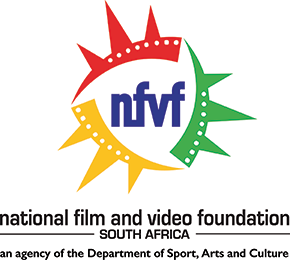| The Business of African Film & Content at Pavillon Afriques, Cannes Film Festival 2019 |
| Something intriguing is brewing this year at the Cannes Film Festival, close to the flashes of the famed red carpet, a walking distance from the yachts banked on the French Riviera, and within the Village International.
Across the African continent, the Caribbean and the Americas, the buzz abounds about this new initiative that is taking place for the first time this year at the Marche du Film of the Cannes Film Festival, which is bound to rally the entire content and film ecosystem from across the diaspora. The buzz is about the Pavillon Afriques. The Pavillon Afriques is slated to become THE busiest, most glamorous meeting, networking and business hub at Cannes this year. With a program that features a mix of private and public sector roundtables discussions on film financing, distribution, piracy and content sourcing, a series of country-focused film destination seminars, celebrity-hosted panels, a leadership workshop with Stedman Graham, multiple women in the business of film sessions, Pavillon Afriques at Cannes will offer substance, perspectives, guidance and entertainment for those who are excited to know more about the goings of the African & Diaspora content for TV and movie industry. Discussing the future of Africa and its diaspora cinema at the Cannes Film Festival in 2019 is a golden opportunity that comes at the right time. A host of business leaders, filmmakers, producers, distributors, music brasses, fashion trendsetters, and literary moguls have already signed on to share their insights at Pavillon Afriques in Cannes from May 14 to May 25, 2019, including so far:
Asked about the timeliness of Pavillon Afriques, Prudence Kolong, communication & operation directors stated that: “There has never been a more opportune time than now for African countries to talk about their film and content industry. It is a billion US dollars market spurred by Nigeria’s Nollywood, South Africa, Kenya, and Ethiopia movie industries. The time has come for the world to take notice.” Africa and its Diaspora Cinema at Cannes Since its inception in 1946, the Festival de Cannes has remained faithful to its founding purpose which is to celebrate cinema on the global stage. And to this day, this profession of faith constitutes the first article of the Festival regulations. In 1963, the African continent officially joined the Festival de Cannes with a lineup of then-unknown directors who have since become legends of the African film history. Sembène Ousmane, the pioneer, followed closely by Mahamat Saleh Haroon, Spike Lee, Ava Duvernay, Raoul Peck, Wanuri Kahiu or Med Hondo’s masterpieces opened the world’s eyes to the uniqueness of motion pictures with stories told from a different perspective. Countless cinematographic works authored, written, directed and produced by creatives and artists from Africa and its diaspora are showcased every year at Cannes. Thousands of movies are traded at the Marché du Film, the world’s biggest gathering for film professionals who come to sell rights, team-up with partners, search for distributors, find financing or build their professional networks. Numbers don’t lie According to Forbes and Fortune, by 2009, Nigeria’s Nollywood had surpassed Hollywood as the world’s second-largest movie industry by volume, right behind India’s Bollywood. And in 2014, the Nigerian government released data for the 3first-time showing Nollywood is a $3.3 billion sector, with 1844 movies produced in 2013 alone. A rising number of world-class directors and actors of African descent use their clout to lure financiers to support African movie making or get production firms to initiate location scouting in their countries of origin. Lupita Nyongo (Kenya), John Boyega (Nigeria), Idris Elba (Sierra Leone), Chiwetel Ejiofor (Nigeria), Koffi Siriboe (Ghana), Djimon Hounsou (Benin), Danai Gurira (Zimbabwe) Pearl Thusi (South Africa) to name a few, are supporting African film industry through strategic investment and involvement in local initiatives. Across the Atlantic, Issa Rae, Donald Glover, Ryan Coogler, Steven Caple, Justin Simien, Will Packer, Tyler Perry, Datari Turner, Tim Story, Lebron James are the new generation of Hollywood movers and shakers who produce and develop programs that get multi-million dollars funding and millions more of viewers. With more than half a billion of TV, cinema and mobile content consumers in Africa and its diaspora, content giants like Netflix, Orange Content, HBO, Amazon and Canal Plus (Pavillon Afriques Broadcasting Partner) have been making strategic moves to enter a marketplace that until now is untapped, misunderstood and not properly marketed to. The approaches of content providers differ depending on their level of commitment and interest. Some sell existing foreign content, others create original content in cooperation with local producers or distributors, however, the majority is still trying to figure out how to package content for African audiences and seize shares in a growing but the seldom regulated market. With that in mind, there is still a lack of reliable statistics or survey conducted in each of the 54 African countries and 26 Caribbean sovereign states to form a substantiated commentary. Bollywood, the world’ second biggest film industry by revenues, has been yielding huge returns from distributing their content in the vast African & Caribbean markets. Markets, who according to a PwC report of 2017 are bolstering digital and entertainment revenues in Africa. Digitally Connected and Culturally Competent In Nigeria, South Africa, Kenya, the film industry is also responsible for driving entrepreneurship and sustained developmental growth as a host of locally based private corporations have ventured into the huge content market by launching “culturally-competent” TVoD or VSoD platforms to meet the need of populations who thirst for content that tell their stories. The digital era, the connected world and the fast-paced innovation in movie and content production technology has opened countless of opportunities for both movie makers and audiences who can now see more storytelling about themselves. With most of the coastal countries in Africa and in the Caribbean fitted with 4G, content enabled mobile devices, advance mobile payment systems and affordable telco subscription rates, the battle for market share in the vast content market in the African can only be won by those who take time to strategize wisely and understand the specificities and peculiarities of the markets at stake. Furthermore, Vivendi, Bollore and other theatrical complex developers are further investing locally. Investors are drawn to this exciting new age in Africa and it’s diaspora cinema where everything is possible. Everything is possible must have been the slogan for the blockbuster of the century. Black Panther has become the undeniable industry game changer as there is now a Before Black Panther (BBP) and an After Black Panther (ABP) when it comes to telling diverse stories, opening up distribution corridors to reach out to often neglected markets, casting specific profiles and changing narratives. A new era and a new narrative The Pavillon Afriques’ very existence stems from the decades-long hard work and commitment from local filmmakers but also from the success of movies like Black Panther, Straight Outta Compton, Girl Trip (USA), Wedding Party (Nigeria), Potato Potahto (Ghana), Siri ya Mtungi (Tanzania), Nairobi Half Life (Kenya), Difret (Ethiopia), Tsotsi (South Africa), The Harder They Come (Jamaica) and more. By creating a unique venue for movie trade and promotion that outlines the diversity and plurality of Africa and its diaspora film and television content, Pavillon Afriques responds to a crucial time imperative. Its ambition is to become an exclusive business platform where film industry stakeholders meet, discuss, trade, make deals and take advantage of the unique atmosphere of the Festival de Cannes. In a nutshell, Pavillon Afrique offers a remarkable insight into the potential for growth across the continent and within the diaspora and provides stakeholders with unprecedented access to the global film industry resources and professionals. Many of Pavillon Afriques’ supporters and partners like Maisha Film Foundation a professional training lab founded by Oscar-winning director Mira Nair, align with the need for filmmakers to own their narrative to offer a diverse, inclusive and differently abled perspective. One the technology front, Black Rhino VR, a Kenyan-based virtual reality studio, who will co-host a tech forum with Nigerian Fintech Venture Capital Firm Venture Garden Group, believe that Pavillon Afriques gives also an opportunity to showcase innovation and technologies that disrupt the movie-making process and costs and created in Africa. By offering free participation for government agencies in charge of promoting their local film industry (film board, tourism/culture ministry or investment board), The Pavillon Afriques at Cannes Film Festival is slowly but surely becoming some sort of a Public Service Initiative which gathers support from all corners of the world. Nigeria, South Africa, Tanzania, Ghana, The Gambia, Jamaica, Burkina Faso, and Djibouti have confirmed their involvement as participating countries in the Pavillon Afriques, showing thus their commitment to sustaining the growth of their local film industry and getting international stakeholders to take notice. And at Cannes 2019, the global community will take notice. |

